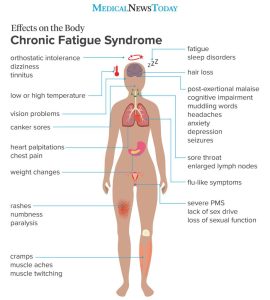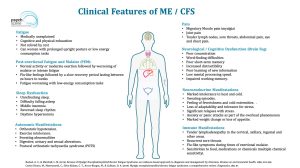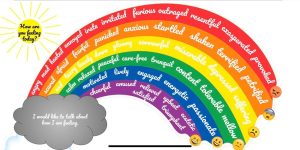Content warning: suicide is mentioned.
I’m sure we’ve all seen those memes circulating that suggest learning something like algebra doesn’t help with everyday life. While I believe that not everyone has to take algebra to the highest grade, I like to disagree with the memes’ suggestions that learning algebra has no benefits.
We may not find ourselves pulling out an algebraic equation to solve something exactly as it’s written in a math textbook. However, I have found myself using it over the years when trying to figure out how best to deal with my health concerns.
The reasoning it takes to solve for ‘x’ in the textbook equations is akin to solving for the ‘why’ behind my health concerns. Sometimes I long for simpler times when I had an answer key at the back of the textbook to figure out if I was solving for ‘x’ correctly. Life doesn’t always come with that answer key!
(Yes, I now sometimes find myself longing for algebraic equations. Don’t tell my children or my former math teachers!)
A reason I’m so passionate about wanting everyone to feel as though they can learn any subject at any age and with any ability level is that we all find ourselves needing to continuously learn as we go through life. This is the core of our Twisted Philosophy!
For myself, I was solving for the ‘x’ of why my health was rapidly declining. Among all the inconsistencies happening to me was one consistent piece: exercise (which is another lifelong passion for me) was actually hurting me. It was the repetition of this fact that led to a diagnosis for me.
“What condition exists that exercise could hurt someone?” is the question I asked my doctors (and there were many) over and over again.
The Diagnosis
Drum roll please… We got an answer after many months, many tests, and many specialist appointments. Have you heard of Myalgic Encephalomyelitis/Chronic Fatigue Syndrome (ME/CFS)?
Let’s be honest, the first part of being diagnosed with this that I had to come to terms with was how to say “myalgic encephalomyelitis.” I used the phonetic way I was taught in school to learn how! (And I may have also gone into YouTube and listened to others pronounce it as well.)
In case you are curious, you pronounce it like this:
my-al-jik
en-ceph-a-lo-my-el-ite-iss
When we talk, bear with me saying it out loud as I’m still practicing ;)!
We believe in making “miss-takes” at Tutoring…With A Twist (see the clapperboard in our Twisted process!). In saying this word, I really should have a clapperboard handy so that we can go through all my takes of trying to pronounce it right!
My eldest child, River, teases me because when I talk about it now, I say, “ME/CFS”. He asks me, “Why do you have to say the ME? Why not just say ‘Chronic Fatigue Syndrome’?” Excellent question, River, sweet child o’ mine…
What Is Myalgic Encephalomyelitis / Chronic Fatigue Syndrome?

Why put the ME there? Why not just refer to it as Chronic Fatigue Syndrome (CFS)?
- Over the years, CFS got somewhat of a bad rap since it was seen as one of those conditions that people got diagnosed with when nothing else could be found wrong with them. So, it wasn’t really seen as “legit”.
- There wasn’t a lot known about it, so oftentimes people would be told to “just rest more” or to “exercise”.
- Other times, people were diagnosed with depression/anxiety and given medication for that.
Eventually, enough people were getting diagnosed with CFS that people in influential positions started suggesting that more research needed to be done.
With this research being done, the ME was added to CFS to add validity to it as a condition.
 I’m called to share this since, as a result of my dedication to being a lifelong learner, I have been able to study this syndrome through an 18-week course (alongside other reading and workshops). Being a lifelong learner helps me be an active participant in my own life with chronic fatigue syndrome (just like how our Twisted Learners become active participants in their own success), and this is a huge benefit to my immediate family and all who work with Tutoring and Parenting…With A Twist.
I’m called to share this since, as a result of my dedication to being a lifelong learner, I have been able to study this syndrome through an 18-week course (alongside other reading and workshops). Being a lifelong learner helps me be an active participant in my own life with chronic fatigue syndrome (just like how our Twisted Learners become active participants in their own success), and this is a huge benefit to my immediate family and all who work with Tutoring and Parenting…With A Twist.
I’ll be writing some further blogs about my life with chronic fatigue syndrome in hopes that the information shared will help someone! Here are some analogies of how ME/CFS affects a person:
ANALOGY #1: Battery Wears Out
Have you had an iPhone, a computer, or any device whose battery life gets shorter and shorter and needs to be charged sooner and sooner? It gets to the point where the message “you have 10% battery left” seems to come up shortly after it’s unplugged at 100%. And sometimes (THE HORROR) you don’t quite make it to the charger before it dies. Or do you need to almost be constantly plugged in because it just doesn’t hold a charge at all?!
Welcome to my life with chronic fatigue syndrome!
ANALOGY #2: It’s Like Borrowing from the Mob
Since we are not devices that can be plugged in like in the analogy above, ‘some’ people (who, me?!) may continue to keep going even when their battery is running on empty. When ‘these’ people (again, definitely not me!) do this, it’s like they are borrowing their energy from the mob. So, you may get the energy at that moment, but there is a price to be paid for it.
In the case of ME/CFS, you may ‘pay’ physically, mentally, and/or emotionally.
There isn’t a set manual that comes with having ME/CFS that says if you run on empty for ‘this’ amount of time, the following consequences will happen. So, much like dealing with the mob, it’s a surprise…
- Will you be physically beaten so that you are achy and sore?
- Will you be traumatized so that you feel scared of what’s lurking around the corner?
- Will your head be concussed so that you have moments of memory failure or word loss?
For funsies, will it be a combination of all three?!
Sharing the Story of My Life with Chronic Fatigue Syndrome
 It has taken me some time to share more as I needed to come to the other side of the very real emotional toll this took on me.
It has taken me some time to share more as I needed to come to the other side of the very real emotional toll this took on me.
I had some very legitimate suicidal thoughts… These thoughts would come out of nowhere.
If you know me well, you will know that most of the time I’m that annoying sunshine-and-unicorn girl whose favourite colour is rainbow glitter! This was innate within me—not false positivity, but a belief that being alive was a seriously fantastical gift.
When I was a little girl, if you had asked me what I wanted to be, I’d have answered, “I don’t know what I want to be, but I know what I want to do. I want to help people.”
I have worked with a lot of people with mental health issues and truly felt that I was well versed and effective in this area.
So, when I suggest to you that I was having these thoughts, it wasn’t so much the thoughts that were scary to me. (Well, ok, it wasn’t a walk in the park.) It was the sheer suddenness of the thoughts coming on and not being able to hold on to ANY thought to pull me out of it.
Imagine something that you are amazing at. Picture yourself doing it (or heck, pause reading this and actually go do it). Close your eyes and really feel the sensation of doing whatever it is. AmAzInG, right?!
Really immerse yourself in the feeling of doing whatever it is!!!
Next, I want you to imagine you’ve totally forgotten how to do it, RIGHT in the midst of doing it. Imagine being in a loop of wanting to take the next step to do whatever it is that you are amazing at, but that you have totally and completely blanked on what to do next.
Close your eyes and feel the sensation of your brain searching and searching for this next action.
A little scary, eh?
I was stuck in the loop of trying to get through the suicidal thought. It’s like it was just beyond my cognitive abilities to get there, though I was sure something other than a suicidal thought existed.
It was more than a little scary…
Fortunately, the suicidal thoughts that I was having did not progress beyond being just thoughts. The difficult part was that my brain wasn’t able to access the next thought that would help me process feeling very sad. I got stuck in the loop of a suicidal thought as my brain was essentially short-circuiting. Sadness and grieving are quite normal. I had to understand that my brain, due to ME/CFS, could not realize these were “normal” emotions when I didn’t pace myself.
If you are experiencing thoughts like these, or if you think someone you know might be experiencing something similar, you’re not alone. I highly recommend checking out our collection of community resources—I promise it’s worth it!
The Future – Living My Life with Chronic Fatigue Syndrome
 With an understanding of my condition, I have been able to find and engage the brain file that gives me permission to feel. And then I can rationalize that feeling and move with and through it.
With an understanding of my condition, I have been able to find and engage the brain file that gives me permission to feel. And then I can rationalize that feeling and move with and through it.
I am SLOWLY learning that borrowing from the mob is really not worth it. (An interesting question to ask yourself as you may potentially be doing the same in a particular area of your life.)
In the season of giving and receiving, living my life with chronic fatigue syndrome makes me feel so grateful that I have such fantastical teams in place in my home and work life.
I have loads more to share about this journey, so stay tuned.
In the meantime, check out our Facebook page and YouTube channel for more Twisted content!


Comments 10
❤️❤️❤️
Thanks Jamie!
Thank you for sharing Amber. That sounds like a difficult road to be on and I hope you are doing ok!
“Every moment is a new one” has become a motto!
Thanks for sharing Amber… Takes courage to accept these challenges life throws at us… and even more to talk about it… nothing but positive thoughts coming your way…
Thanks Darren :)! Processing all the positivity!
We’re in the process of waiting for a twisted tutor so I don’t know you personally (yet) but I just wanted to say I’m rooting for you. As someone who’s worked in the world of eating disorders/predominantly female areas of mental health (and physical), I’m sooo glad CFS is being discussed more and legitimatized. Sadly, so many issues which predominantly affect women are ignored and stigmatized as ‘in our heads’ when in fact something is going on and just because we don’t yet know why or how – does not mean it isn’t real.
My secondhand experience with ME/CFS is that it’s a long haul journey with lots of twists and turns and it sounds like your love of learning, innate curiosity and the relationships you’ve cultivated will be such a comfort as you figure this out and experiment and explore what helps and what doesn’t.
Big virtual hugs!
Brooke – we will probably have a lot to discuss once we do get to know each other! Thank you for the work you do :)! Hug accepted!
Amber, I’m so proud of you and inspired by you. I hope that getting a diagnosis has brought some relief, despite the emotional toll and the physical changes ME has made in your life. I appreciate your honesty about the difficulties and yet you still find a way to use it as an opportunity to help others, model lifelong learning and share resources. Love you and miss you Amber! You are amazing! ❤️
Love & miss you too! We are mirrors of what we see in others and I too think you are amazing! <3